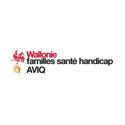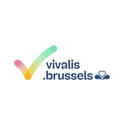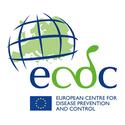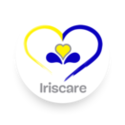In short
Sick or weakened people are more susceptible to infections. In places where these people temporarily stay together, such as in hospitals and residential care institutions, outbreaks can occur where several people become infected with the same pathogen. Outbreaks with bacteria that are highly resistant to antibiotics present a particular challenge to the healthcare staff. If needed, the regional health authorities, Sciensano and other external experts work together as Outbreak Support Team (OST) to advise care facilities struggling with difficult-to-control MDRO* outbreaks.
(*MDRO: Multi-Drug Resistant Organism)
Tools for outbreak investigation & management: scroll down
Project description
Legal background
On 21 November 2013, the protocol agreement regarding the national strategic plan to combat MDRO was published in the Official Gazette. The ‘OST’ concept was created in this context: a team of experts that can support care facilities with challenging outbreaks. The OST is led by experts from the regional health authorities. As soon as an outbreak with MDRO is notified to the concerned regional health authority, they can offer their support. Other experts e.g. from Sciensano or the relevant National Reference Center (NRC) can be called upon if needed.
The OST operates on the basis of available recommendations and scientific recommendations and evidence, supplemented by experiences from the past. It puts its specific expertise at the service of the hospital Infection Prevention & Control (IPC) team or the responsible physician of the residential care facility. Tools for outbreak investigation and management are provided. The primary and final responsibility for the outbreak rests with the hospital or care facility.
Important reminder for healthcare professionals: Outbreaks with MDRO are on the list of notifiable diseases. For notifying your regional health authority, please find information at the bottom of this page. Notification does not imply a request for support by OST. You can request support pro-actively or it may be offered to you upon notification.
Tools for outbreak investigation and management in healthcare facilities
Note: The tools are developed specifically for MDRO outbreaks but can be used for other outbreaks as well.
Checklist
Here you find a checklist that can be helpful in case of an outbreak in your care facility. It is a fillable PDF file that you can download and safe for future use. Please choose the right template depending on your language and region:
French checklists
Dutch checklists
Important reminder for healthcare professionals: Outbreaks with MDRO are on the list of notifiable diseases. For notifying your regional health authority, please find information at the bottom of this page. Notification does not imply a request for support by OST. You can request support pro-actively or it may be offered to you upon notification.
EpiCurve tool
An epidemic curve (epi-curve) is a key instrument for following up on an outbreak. Ideally it is drafted as soon as an outbreak is suspected and screening has started. It should be updated regularly as long as the outbreak is active.
We provide the Belgian healthcare facilities with a user-friendly tool for making this curve
The ![]() User Manual explains the concept and the use of the tool. It also contains information on obtaining access to the application. Data are initially collected in Excel and then uploaded in the EpiCurve application. The privacy of the patients is warranted by using two types of Excel templates: one for local use and one for uploading. The user manual explains more in detail how the privacy of the patients is protected. The Excel templates (in English, French and Dutch) are available in the tool but also below.
User Manual explains the concept and the use of the tool. It also contains information on obtaining access to the application. Data are initially collected in Excel and then uploaded in the EpiCurve application. The privacy of the patients is warranted by using two types of Excel templates: one for local use and one for uploading. The user manual explains more in detail how the privacy of the patients is protected. The Excel templates (in English, French and Dutch) are available in the tool but also below.
Important information regarding the EpiCurve tool: This it is not a notification nor a data collection tool. It is only intended to assist you with the creation of an epi-curve.
Important reminder for healthcare professionals: Outbreaks with MDRO are on the list of notifiable diseases. For notifying your regional health authority, please find information at the bottom of this page. Notification does not imply a request for support by OST. You can request support pro-actively or it may be offered to you upon notification.
English templates
French templates
 Modèle Local de Surveillance d’une Epidémie
Modèle Local de Surveillance d’une Epidémie Modèle de Téléchargement pour l’Outil Sciensano EpiCurve
Modèle de Téléchargement pour l’Outil Sciensano EpiCurve
Dutch templates
Contact details of the regional health authorities
Flanders - Departement Zorg
- E-mail: infectieziektebestrijding@vlaanderen.be
- List of notifiable diseases: Overzicht infectieziekten en bijhorende richtlijnen | Zorg (zorg-en-gezondheid.be)
- How to notify? Een meldingsplichtige infectieziekte aangeven | Zorg en (zorg-en-gezondheid.be)
Wallonia and the German-speaking Community - Agence pour une Vie de Qualité — AVIQ
- E-mail Wallonia: surveillance.sante@aviq.be
- Telephone Wallonia: 071 33 77 77
- E-mail German-speaking Community: infektionen@dgov.be
- Telephone German-speaking Community: 0492 14 05 57
- List of notifiable diseases: Liste des maladies à déclaration obligatoire en Wallonie | AVIQ
- How to notify? AViQ | Déclaration
Brussels-Capital Region – Vivalis
- E-mail: notif-hyg@vivalis.brussels
- Telephone: 02 552 01 91
- List of notifiable diseases: Vivalis
- How to notify? Nous alerter | Vivalis
Results
Consult the ![]() overview of outbreaks with multi-drug resistant organisms (MDRO) where epidemic support has been provided in Belgium between December 2014 — December 2020.
overview of outbreaks with multi-drug resistant organisms (MDRO) where epidemic support has been provided in Belgium between December 2014 — December 2020.
Sciensano's project investigator(s):
Service(s) working on this project
Partners








